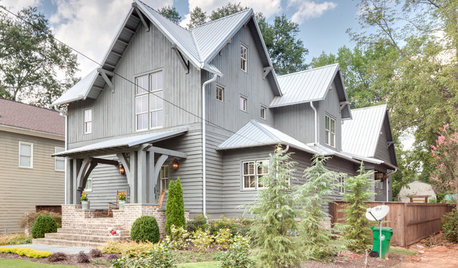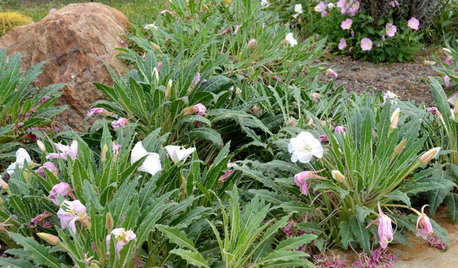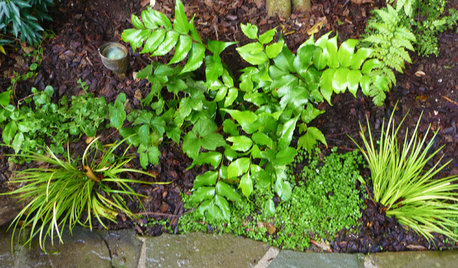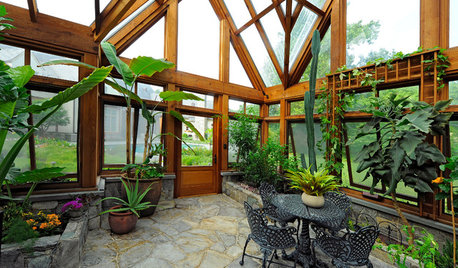Adding worms to compost
PJD121
10 years ago
Related Stories

GARDENING GUIDESHouzz TV: Make a Worm Bin for Rich Soil and Happy Plants
A worm-powered compost bin that can fit under a sink turns food scraps into a powerful amendment for your garden. Here’s how to make one
Full Story
GARDENING GUIDESGet on a Composting Kick (Hello, Free Fertilizer!)
Quit shelling out for pricey substitutes that aren’t even as good. Here’s how to give your soil the best while lightening your trash load
Full Story
MOST POPULARWhat to Know About Adding a Deck
Want to increase your living space outside? Learn the requirements, costs and other considerations for building a deck
Full Story
GREEN BUILDINGHow to Recycle Your Kitchen
Instead of adding to the junk pile — and paying landfill fees — get rid of old appliances, cabinets and countertops the ecofriendly way
Full Story
FARMHOUSESHouzz Tour: Some Old Tricks for a New Atlanta Farmhouse
A ‘pretend story’ helped this builder create a new farmhouse that feels like it was added onto over several generations
Full Story
GARDENING GUIDES10 Cold- and Heat-Tolerant Perennials and Shrubs for the Arid West
These flowering native plants shrug off the cold of winter and heat of summer while adding beauty to the drought-tolerant landscape
Full Story
GARDENING GUIDESGreat Design Plant: Cyrtomium Falcatum ‘Rochfordianum’
Adding Japanese holly fern to your woodland garden is a great way to celebrate the holidays and create lasting memories
Full Story
HOUSEKEEPING10 Chores You Can Whip Through During Commercials
Use ad time for getting tasks done, and it’s like fast-forwarding your house into cleanliness
Full Story
EDIBLE GARDENSThe Enticing Garden: How to Grow Bananas
Sweeten your dining table with surprising flavors of banana cultivars while adding tropical flavor to your garden
Full Story
HOUZZ TOURSHouzz Tour: For the Love of a Cat in Philadelphia
Pet-friendly features integrated into a mod, eclectic and colorful home mean everyone in the family is happy
Full StoryMore Discussions








Kimmsr
robertz6
Related Professionals
Wrentham Landscape Architects & Landscape Designers · Horsham Landscape Architects & Landscape Designers · Edmond Landscape Contractors · Alpharetta Landscape Contractors · Apollo Beach Landscape Contractors · Cary Landscape Contractors · North Canton Landscape Contractors · Peoria Landscape Contractors · Washington Landscape Contractors · Waterford Landscape Contractors · Webster Groves Landscape Contractors · Arbutus Decks, Patios & Outdoor Enclosures · Bowie Decks, Patios & Outdoor Enclosures · Miami Decks, Patios & Outdoor Enclosures · South Milwaukee Decks, Patios & Outdoor Enclosuresrookie09
patricianat
nancyjane_gardener
klem1
luckygal
floral_uk z.8/9 SW UK
PJD121Original Author